Should I Repair or Replace My Old HVAC System?
Deciding whether to repair or replace your old HVAC system can feel overwhelming. It’s a big decision that affects your comfort, energy bills, and even property value. Understanding your options helps you make a wise choice that suits your needs and budget. Here’s what to consider when faced with this dilemma.
Factors to Consider
When evaluating whether to repair or replace your HVAC system, keep these important factors in mind:
- Age of the System: If your HVAC system is over 10-15 years old, it may make more sense to replace it. Older systems are often less efficient and may not meet current energy standards.
- Repair Costs: If a repair costs more than 50% of a new system, replacement might be the better option. Regular repairs can add up quickly.
- Energy Efficiency: New HVAC systems are typically more energy-efficient, which can save you money on utility bills in the long run.
- Frequency of Repairs: If you find yourself calling for repairs frequently, it’s a sign that your system may be nearing the end of its lifespan.
- Comfort Levels: If you notice uneven heating or cooling in your home, it may indicate that your system is struggling and could need replacement.
Pros and Cons of Repairing
When considering repairs, it’s essential to weigh the positives and negatives:
| Pros | Cons |
|---|---|
| Lower immediate cost compared to replacement. | Repairs may only be a temporary fix. |
| Repairs can add up and become costly over time. | |
| Less hassle than purchasing a new unit. | Older systems are often less efficient. |
Pros and Cons of Replacing
Replacement also has its benefits and drawbacks. Here’s what you need to know:
| Pros | Cons |
|---|---|
| Increased energy efficiency, leading to lower utility bills. | Higher initial cost for the purchase and installation. |
| Improved comfort and climate control in your home. | Possible disruption during installation. |
| New technology may offer better performance features. | You may need to invest more for advanced features. |
When to Choose Replacement
In certain situations, replacing your HVAC system is the best course of action:
- Your system is over 15 years old.
- You’ve experienced multiple breakdowns in a single season.
- Your energy bills have steadily increased without a change in usage.
- It requires expensive repairs, which would exceed the cost of a new system.
- Your system is not cooling or heating your home effectively.
Consult with Professionals
Before making a decision, consider consulting with a certified HVAC technician. They can provide a detailed assessment of your system’s condition, potential repairs, and advice tailored to your home. Make sure to get quotes from various contractors to ensure you’re getting the best deal.
Making Your Decision
Your HVAC system plays a vital role in maintaining comfort in your home. When faced with the question of repair or replacement, consider the factors mentioned. Take your time to weigh the short-term and long-term impacts of your choice. Ultimately, whether you repair or replace, the goal is to ensure comfort while being mindful of costs.
For more information about HVAC repair and replacement options, visit Energy.gov for insights on energy efficiency and system maintenance. Additionally, check out HVAC.com for tips on selecting the right HVAC system for your home.
Signs That Indicate Your HVAC System Needs Replacement
As a homeowner, keeping your HVAC system running efficiently is crucial for maintaining comfort in your space. However, as systems age, they can start to show signs of wear and tear. Understanding these signs will help you make an informed decision about whether to repair or replace your old HVAC system. Here are some key indicators that your HVAC system may need a complete replacement.
Age of the System
Generally, most HVAC systems have an average lifespan of 15 to 20 years. If your system is approaching or exceeding this age, it’s time to assess its performance closely. Older systems are often less efficient, costing you more on energy bills. Consider replacement options if your system is showing other signs of failure as well.
Frequent Repairs
If you’re constantly calling for repairs, it may indicate that your HVAC system is failing. Frequent breakdowns not only disrupt your comfort but also put a significant strain on your wallet. Each repair can add up, making a replacement more cost-effective in the long run.
Inconsistent Temperature Control
Have you noticed some rooms in your house feel warmer or cooler than others? This inconsistency could be a sign that your HVAC system is struggling to distribute air evenly. If adjusting the thermostat does not improve the situation, then it’s time to consider a new system.
High Energy Bills
One of the key indicators of an inefficient HVAC system is an increase in energy bills. If your utility costs have significantly risen without a change in usage, your HVAC system may not be functioning properly. Newer systems come with advanced technology designed to help reduce energy consumption, often leading to lower bills.
Strange Noises
Unusual sounds such as banging, hissing, or squealing coming from your HVAC system can indicate serious issues. While some noises can be repaired, consistent sounds often suggest the need for replacement. Ignoring these could lead to further damage, which may result in higher costs down the line.
Excessive Dust and Allergens
If you’ve noticed more dust around your home or increased allergy symptoms among your family members, it could stem from your HVAC system. Older systems often struggle to filter out allergens effectively. New units come with improved air filters, which can enhance your indoor air quality significantly.
Carbon Monoxide Detector Alerts
Having a CO detector in your home is essential for safety, particularly if you have a gas furnace as part of your HVAC system. If your detector goes off, you must take it seriously. Faulty heating systems can produce dangerous carbon monoxide levels, making an upgrade a critical safety measure.
Signs of Corrosion or Rust
If you see rust or corrosion on any part of your HVAC system, it indicates age and deterioration. This is especially problematic for the furnace or heat exchanger. If these components are failing, a replacement may be your safest option.
Resetting the System Regularly
If your system frequently shuts down and requires resetting, it signals underlying issues. Constantly resetting the HVAC impacts performance and can lead to more significant problems if neglected. A new system could save you from ongoing headaches.
Once you’ve identified these signs, evaluating your options thoroughly is critical. In some cases, a repair may seem tempting, but it’s essential to consider the long-term costs. More efficient models can greatly improve comfort and reduce your energy consumption. Check out resources like Energy Saver for tips on energy-efficient systems.
Understanding the signs that your HVAC system may need replacement can prevent further complications and costs. Always consult with a certified HVAC technician to receive professional advice tailored to your specific circumstances. Seek further assistance and guidance from professionals by visiting ASHRAE to stay updated on HVAC trends and technologies.
| Sign | Action Suggested |
|---|---|
| Age of the system over 15 years | Consider replacement |
| Frequent repairs needed | Evaluate replacement options |
| Inconsistent temperature | Assess for replacement |
| Higher energy bills | Check for inefficiencies |
The Benefits of Regular HVAC Maintenance
Keeping your HVAC system in top condition is essential for maintaining a comfortable indoor environment. Regular maintenance can prevent unexpected breakdowns and extend the lifespan of your unit. When you take care of your HVAC system, you not only enhance performance but also enjoy multiple benefits.
Improved Energy Efficiency
One of the significant benefits of regular HVAC maintenance is improved energy efficiency. Over time, dust and debris can accumulate in your system, making it work harder to heat or cool your home. A well-maintained HVAC system can operate at optimal efficiency, reducing energy consumption and ultimately lowering your utility bills. This efficiency can save you a considerable amount over time, making it a worthwhile investment.
Enhanced Air Quality
Indoor air quality is crucial for your health and comfort. Regular maintenance of your HVAC system includes cleaning or replacing filters, which helps eliminate dust, pollen, and allergens from the air. This is especially beneficial for individuals with allergies or respiratory issues. By ensuring your system is clean and well-functioning, you contribute to a healthier living environment for you and your family.
Extended Lifespan of Equipment
HVAC systems are a significant financial investment, and regular maintenance can greatly extend their lifespan. Just like your car, your HVAC system requires routine check-ups to function efficiently. Neglecting maintenance can lead to premature wear and tear on critical components, resulting in the need for expensive repairs or even complete system replacement. By committing to regular maintenance, you can protect your investment and delay costly replacements.
Fewer Emergency Repairs
One of the most stressful situations for homeowners is having their HVAC system break down unexpectedly. Regular maintenance helps identify potential issues early on, allowing you to address them before they become significant problems. This proactive approach can save you from the inconvenience and expense of emergency repairs. In addition, scheduled maintenance reduces the likelihood of system failure during extreme weather conditions when you need heating or cooling the most.
Increased Resale Value
If you’re considering selling your home, an HVAC system that has been well-maintained can be a selling point. Prospective buyers appreciate a system that is functioning properly and has been routinely serviced. By keeping thorough records of regular visits and maintenance checks, you can showcase the system’s condition, potentially increasing your home’s resale value.
Peace of Mind
Knowing that your HVAC system is running well and has been properly serviced provides peace of mind. You can rest easy, knowing you have taken the necessary steps to ensure comfort and safety in your home. Regular maintenance can alleviate worries about breakdowns, therefore allowing you to focus on other essential aspects of homeownership.
Cost-Effective Regular Maintenance Plans
Many HVAC companies offer affordable maintenance plans that can be budget-friendly. These plans often include annual tune-ups, filter changes, and priority service, which means you will be prioritized if an issue arises. Taking advantage of these maintenance plans helps in managing costs while ensuring your system remains in peak condition.
| Benefit | Description |
|---|---|
| Energy Efficiency | Lower utility bills through improved system performance. |
| Air Quality | Cleaner air with fewer allergens and pollutants. |
| Extended Lifespan | Prolongs the life of your HVAC system. |
| Fewer Repairs | Reduces the chances of unexpected breakdowns. |
| Increased Resale Value | Enhanced market appeal for potential buyers. |
| Peace of Mind | Confidence in the condition of your system. |
To get the most out of your investment, it’s crucial to partner with a reliable HVAC professional. With their expertise, you can ensure that all aspects of your HVAC system are meticulously checked and maintained. For further information, consider visiting Energy.gov for tips on maintaining your HVAC system effectively. Alternatively, check out Angie’s List for information on HVAC service recommendations.
Regular HVAC maintenance is not just a chore; it’s an investment in your home’s comfort, health, and value. By prioritizing these services, you can enjoy the advantages that come with a well-maintained HVAC system.
Cost Comparison: Repairing vs. Replacing Your HVAC
When faced with the decision of whether to repair or replace an old HVAC system, the cost is often a primary concern. Understanding the cost implications of both options can help you make an informed choice that best fits your budget and heating or cooling needs.
To start, let’s take a look at the typical costs associated with repairing an HVAC system versus replacing it altogether. Here’s a simple breakdown:
| Service | Average Cost | Longevity |
|---|---|---|
| Repair | $150 – $1,200 | 1-2 years |
| Replacement | $3,000 – $7,000 | 15-20 years |
These costs can vary significantly based on factors such as the age of the system, the extent of the damage, and your location. It’s essential to consult with a reputable HVAC professional to obtain a more accurate quote tailored to your specific situation.
When deciding whether to repair or replace your HVAC system, it’s crucial to consider the following factors:
- Age of the System: If your HVAC unit is over 10 years old, the likelihood of major repairs increases. Often, replacement is a more cost-effective solution in the long run.
- Frequency of Repairs: Too many repairs within a short time indicate that the system is on its last legs. A pattern of failures may suggest that investing in a new unit is more prudent.
- Energy Efficiency: Newer systems are generally designed to be much more efficient. Upgrading can lead to substantial savings on your energy bills.
- Comfort Levels: If you notice inconsistent temperatures or humidity issues, this can disrupt your comfort. While repairs might temporarily fix the issue, a new unit often provides a more durable solution.
- Resale Value: A newer HVAC system can add value to your home. If you plan to sell soon, consider how your current unit’s condition might affect its marketability.
Beyond these factors, understanding the potential savings and costs associated with each option can further sway your decision. Repairs may seem less expensive upfront but can add up if problems persist. Compare this to the long-term savings with a new system due to improved energy efficiency and lower repair costs.
Furthermore, consider any available rebates or incentives. Many local governments and energy companies offer incentives for upgrading to energy-efficient HVAC systems. This can offset the higher initial costs associated with replacement.
Another key aspect to weigh is the financing options available to you. Many HVAC contractors offer financing that allows you to pay for a new unit over time. This can make replacing your system more manageable, even if the upfront cost seems high.
Moreover, it’s worth noting the condition of the existing ductwork, as this can also affect your decision. If the duct system is in disrepair, it might be wise to consider a complete overhaul. A new HVAC system paired with updated ductwork can lead to optimal airflow and efficiency, maximizing the performance of your investment.
Ultimately, the decision to repair or replace your HVAC system comes down to a careful evaluation of costs, system age, frequency of repairs, and your personal comfort preferences. Make sure to reach out to a qualified local HVAC technician who can provide a professional assessment and guide you on the best path forward. For more information, visit Energy Saver or HVAC.com for resources specific to your HVAC needs.
Balancing immediate expenses with long-term benefits is critical. Take the time to assess your unique situation so you can make the best choice for your home.
Energy Efficiency and Its Impact on HVAC Decisions
When considering an aging HVAC system, you may wonder how energy efficiency plays into the decision to repair or replace. As energy costs continue to rise, understanding the implications of energy efficiency becomes crucial. Energy-efficient systems can lead to significant savings on your utility bills while also minimizing environmental impact.
Understanding Energy Efficiency in HVAC Systems
Energy efficiency refers to using less energy to provide the same level of comfort in your home. Older HVAC systems often operate well below modern standards, which can result in higher energy usage. When assessing whether to repair or replace your old system, energy efficiency is a key factor. Here are a few points to consider:
- Age of the System: Typically, HVAC systems have a lifespan of 10 to 15 years. If your system is nearing the end of this lifespan, the chances of it being energy efficient are low.
- SEER Ratings: Seasonal Energy Efficiency Ratio (SEER) ratings measure the cooling output during a typical cooling season divided by the total electric energy input. Newer models generally boast ratings of at least 14, while older systems may fall well below this.
- Energy Star Certification: Look for systems with the Energy Star label. These models meet strict energy efficiency guidelines set by the U.S. Environmental Protection Agency.
Cost Considerations
Although it may be tempting to repair an old HVAC system, consider the long-term financial implications. Repairs can be less costly upfront, but they may not address efficiency issues that lead to increased energy consumption over time. Here’s how to look at the costs:
| Cost Factor | Repair | Replace |
|---|---|---|
| Initial Cost | Lower | Higher |
| Operational Costs | Potentially Higher | Lower with Energy Efficiency |
| Maintenance Frequency | Higher | Lower |
By investing in a new, energy-efficient system now, you may save money in the long run despite the higher initial costs. Consider this when deciding whether to repair or replace your old HVAC system.
Impact on Environmental Sustainability
Beyond personal savings, energy efficiency also plays a role in environmental sustainability. HVAC systems that use less energy reduce fossil fuel consumption, leading to decreased greenhouse gas emissions. By choosing to replace your old system with a more energy-efficient version, you contribute positively to global efforts in combating climate change.
Moreover, government incentives for energy-efficient systems can ease the financial burden. Many local energy providers offer rebates or low-interest financing options for those who opt for high-efficiency models. Research available programs on the U.S. Department of Energy website to maximize your savings.
Deciding Factors for Repair vs. Replacement
Several factors can influence your decision on whether to repair or replace your HVAC system:
- Repair Costs: If repairs are frequent and expensive, replacement may be more sensible.
- Efficiency Gains: Can a new unit significantly lower energy bills?
- Comfort Levels: Is your existing system unable to maintain consistent temperature and air quality?
- Technological Advancements: Newer systems often come with better features, including smart thermostats that enhance energy management.
Evaluating these factors can aid in making an informed decision about your HVAC system’s future. Don’t hesitate to consult with a certified HVAC professional who can provide personalized guidance based on your situation.
Final Thoughts
Energy efficiency should be at the forefront of your decision-making process when contemplating whether to repair or replace your old HVAC system. Not only does it affect your wallet, but it also has broader implications for our planet. A new energy-efficient system could lead to a more comfortable home environment, lower energy bills, and a smaller carbon footprint. Take the time to analyze your options thoroughly, and you’ll make a decision that’s good for your home and the earth.
For more information about HVAC systems and energy efficiency, you can visit Energy Star or the EPA’s Energy Efficiency page.
Common HVAC Problems and Their Solutions
Heating, Ventilation, and Air Conditioning (HVAC) systems are crucial for maintaining a comfortable indoor climate. However, they can face various issues over time. Understanding common HVAC problems and recognizing effective solutions can save you both time and money. Here are some frequent problems you might encounter and how to address them.
1. Poor Airflow
Poor airflow can lead to discomfort in your home and indicate a more significant issue within the HVAC system. You might experience hot and cold spots, or the system may not cool or heat effectively. Common causes include:
- Blocked or dirty air filters
- Duct leaks or blockages
- Malfunctioning blower motors
To resolve this issue, start by replacing or cleaning your air filters every 1-3 months. Ensure your ducts are free from blockages and consider a professional inspection if the problem persists.
2. Strange Noises
If your HVAC system begins to make unusual noises such as grinding, squealing, or clanking, it’s essential to address it quickly. These sounds can indicate:
- Loose or worn-out components
- Debris in the unit
- Imbalances in the fan
Identify the noise’s source and consult an HVAC technician for repairs. Ignoring these sounds can lead to more costly repairs down the road.
3. Refrigerant Leaks
Refrigerant leaks can severely impact your air conditioning unit. If your air conditioner isn’t cooling efficiently, it could mean that the refrigerant is low due to a leak. Common symptoms include:
- Ineffectiveness in cooling
- Ice buildup on the refrigerant lines
- Higher energy bills
Handling refrigerant leaks requires a certified technician, as they are trained to manage hazardous substances safely. If you suspect a refrigerant leak, turn off your system immediately and call a professional.
4. Thermostat Issues
The thermostat acts as the brain of your HVAC system. Problems with it can lead to improper heating or cooling. Common thermostat issues include:
- Calibration errors
- Dead batteries
- Wiring problems
To troubleshoot, check if the thermostat is set to the appropriate temperature. If it’s unresponsive, try replacing the batteries. For wiring issues, it’s best to call in an HVAC professional.
5. Frequent Cycling
Frequent cycling, where your HVAC system turns on and off repeatedly, can be both annoying and energy inefficient. It might be caused by:
- Dirty air filters
- Improperly sized units
- Faulty sensors
Regular maintenance, including replacing filters, can help. If the problem continues, consult a technician to check for unit sizing or sensor issues.
6. High Energy Bills
If you notice a sudden spike in your energy bills, your HVAC system could be working harder than necessary due to inefficiencies. It can be linked to:
- Neglected maintenance
- Old or outdated equipment
- Poor insulation in your home
Having regular maintenance done can significantly reduce costs. If your system is over ten years old, consider evaluating options for replacement or upgrades.
7. Foul Odors
Odors from your HVAC system can point to serious problems. If you detect a musty smell, it could indicate mold or mildew, while a burning smell may indicate an electrical issue. Here’s how to address it:
- Change filters and check ductwork for mold.
- Inspect for any frayed wires or burnt components.
- Call a professional for persistent smells.
General maintenance is essential to keep your HVAC system running smoothly. Regular check-ups can help catch and fix minor problems before they become significant issues. For more in-depth assistance in spotting HVAC problems or preventive tips, refer to resources like Energy.gov or HVAC.com.
With this knowledge on common HVAC issues, you’ll be better equipped to maintain your system and ensure a comfortable living environment.
Long-Term Considerations for HVAC System Lifespan
When it comes to maintaining a comfortable home, your HVAC (heating, ventilation, and air conditioning) system plays a crucial role. It’s important to think long-term about its lifespan. Understanding the factors that influence your HVAC system’s durability can help you make smart decisions about repairs versus replacement.
Typically, HVAC systems are designed to last between 15 to 25 years, depending on the type, maintenance, and use. However, several factors can affect this lifespan, and it’s essential to take them into account when evaluating your system.
Age of the System
One of the first things to consider is the age of your HVAC system. If your system is approaching or has exceeded its expected lifespan, you might want to start thinking about replacement instead of repair. Systems over 15 years old tend to be less efficient, leading to higher energy costs. You can find details on typical system lifespans at Energy.gov.
Efficiency Ratings
Next, consider the energy efficiency ratings of your HVAC system. Modern systems often have higher SEER (Seasonal Energy Efficiency Ratio) and AFUE (Annual Fuel Utilization Efficiency) ratings than older models. If your system is running below a 13 SEER or 80% AFUE, it may be significantly increasing your energy bills. A quick upgrade can lead to lower monthly bills and a more comfortable environment, as explained in detail on ENERGY STAR.
Repair Frequency and Costs
How often do you find yourself repairing your HVAC system? If repairs have become a frequent occurrence, it’s time to evaluate the costs. A good rule of thumb is the “5,000 rule,” which states that if the total cost of repairs over the last two years exceeds 5,000 dollars multiplied by the age of the unit, consider replacing it. For example, if your system is 10 years old and you’ve spent $3,000 on repairs, you’re still below the threshold of $50,000.
Existing Problems
Consider the specific problems your HVAC system is experiencing. Common issues include:
- Frequent breakdowns
- Inconsistent heating or cooling
- Strange noises or odors
- Increased humidity levels in your home
If these problems persist, they can impact your comfort and health, suggesting you should look into replacement options soon.
Environmental Impacts
Older HVAC systems can contribute to environmental issues, especially if they rely on refrigerants now banned due to their negative impact on the ozone layer. Replacing your outdated system can reduce your carbon footprint. You can read more about eco-friendly options at EPA.gov.
Financing Options
If replacement looks necessary, consider the financing options available. Many manufacturers and contractors offer financing plans that can make the transition smoother on your budget. Be sure to explore warranties and rebates that can help alleviate overall costs.
Choosing a Contractor
Once you’ve made the decision to replace your HVAC system, selecting a reputable contractor is critical. Look for:
- Certifications from organizations such as NATE (North American Technician Excellence)
- Positive reviews from past customers
- Free estimates and clear pricing
For reliable contractor information and reviews, check out HomeAdvisor.
The long-term considerations for your HVAC system’s lifespan extend well beyond immediate repairs. By evaluating factors like age, efficiency, repair frequency, and environmental impacts, you can make a well-informed decision about whether to repair or replace your system. Consider consulting with professionals to weigh your options effectively so you can enjoy a comfortable and efficient home for years to come.
Key Takeaway:
When deciding whether to repair or replace your old HVAC system, it’s essential to consider several key factors that can influence your decision. Understanding the signs that indicate your HVAC system needs replacement is the first step. Common indicators include frequent breakdowns, rising energy bills, and uneven heating or cooling. If you notice these issues, it may be time to weigh your options.
Regular HVAC maintenance is crucial for any system’s longevity and efficiency. Routine check-ups can catch minor problems before they escalate into costly repairs or replacements. Investing in maintenance not only prolongs your system’s life but also helps ensure optimal performance, improving energy efficiency, which can significantly lower utility costs over time.
When it comes to the financial aspect, a cost comparison of repairing versus replacing your HVAC system is vital. In some cases, repairs may seem less expensive initially, but recurring expenses can add up, leading to higher overall costs in the long run. If your system is older than 10-15 years, it generally makes more financial sense to consider replacement, especially when factoring in energy efficiency. Newer HVAC systems are built to operate more efficiently, which can result in substantial savings on your energy bill.
Additionally, common HVAC problems often come with defined solutions, but repeatedly fixing the same issue may signal the need for a more permanent resolution. Long-term considerations for HVAC system lifespan are also crucial. If your current system has reached its life expectancy, investing in a new unit may save you money and headaches down the line.
The decision to repair or replace your HVAC system should not be taken lightly. By considering the signs of wear, the importance of maintenance, energy costs, and long-term financial implications, you can make a more informed decision that benefits your home and comfort in the long run. Your HVAC system plays a vital role in your daily comfort, so choose wisely for a better, more efficient future.
Conclusion
Deciding whether to repair or replace your old HVAC system can be a challenging task. By examining the signs that indicate a system replacement, such as increased energy bills, frequent repairs, and inconsistent temperatures, you can make a more informed decision. Recognizing these indicators can save you time, money, and stress in the long run.
Regular HVAC maintenance plays a crucial role in extending the lifespan of your system. Keeping your unit well-maintained not only optimizes its performance but can also help you avoid larger repair costs down the road. When weighing repair versus replacement, understand the cost implications of each option. Often, investing in a new, energy-efficient system might seem more expensive upfront, but it can lead to significant savings in the long run through lower utility bills.
Energy efficiency is another vital consideration. Older systems tend to be less energy-efficient, resulting in higher operational costs. Replacing your HVAC system might provide the opportunity for modern technology that conserves energy and reduces your carbon footprint.
Common HVAC problems often have straightforward solutions, but if issues persist despite repairs, it may be a signal that it’s time for a replacement. Ultimately, consider the long-term outlook for your HVAC system’s lifespan. If it’s nearing the end of its expected life, investing in a new system can give you peace of mind and improve comfort in your home.
Making the right choice requires careful consideration of these factors, ensuring you invest wisely in your home’s comfort and efficiency.
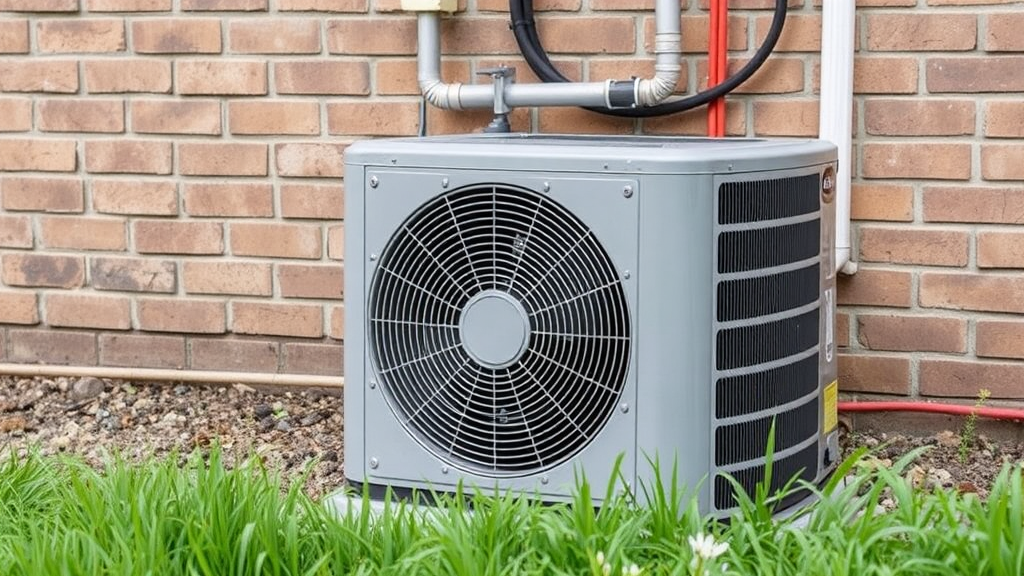
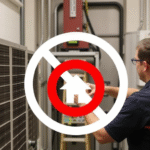
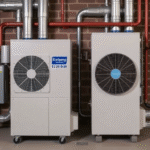
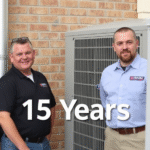
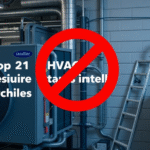
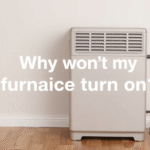
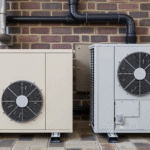
Leave a Reply